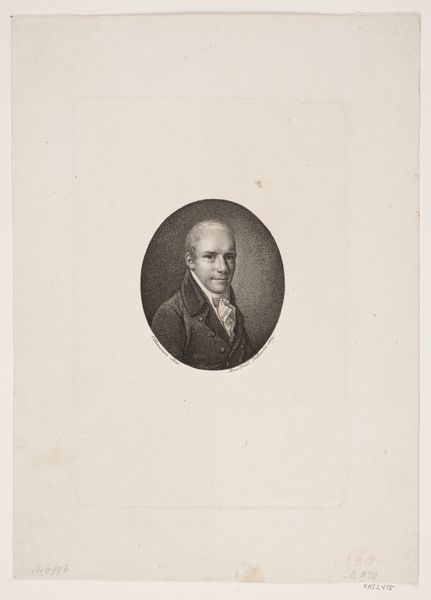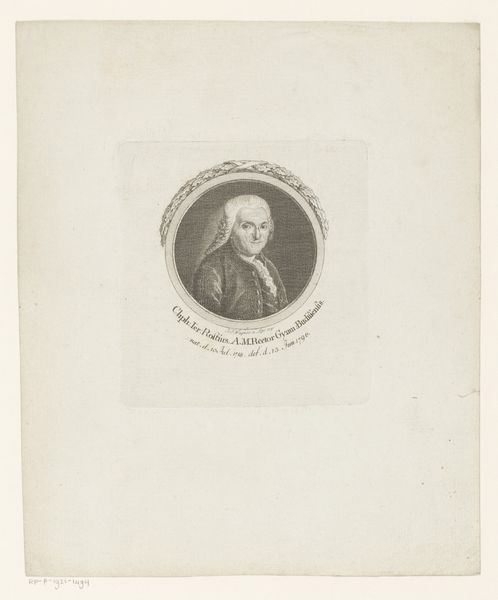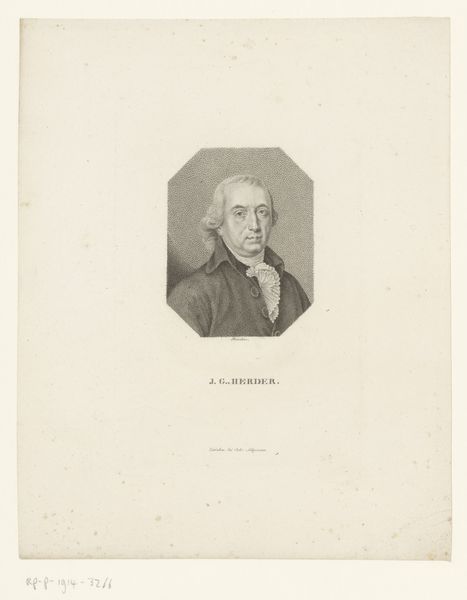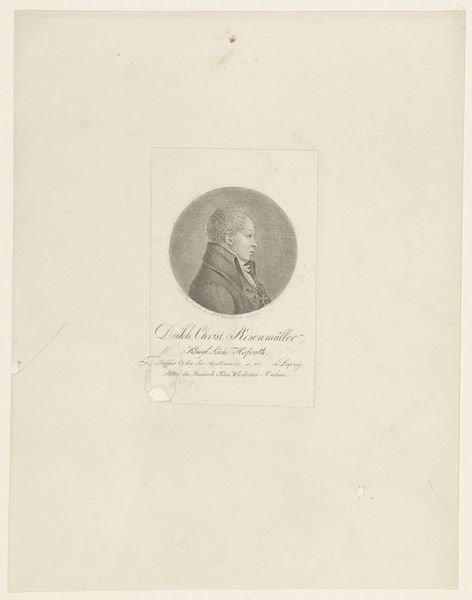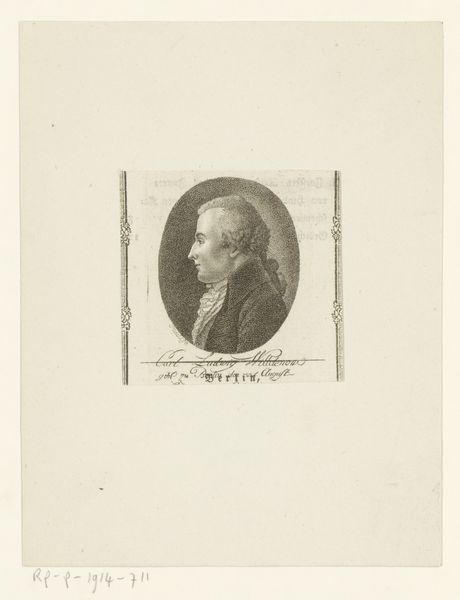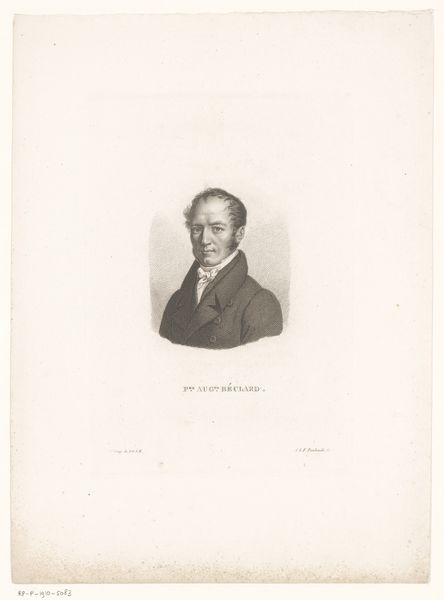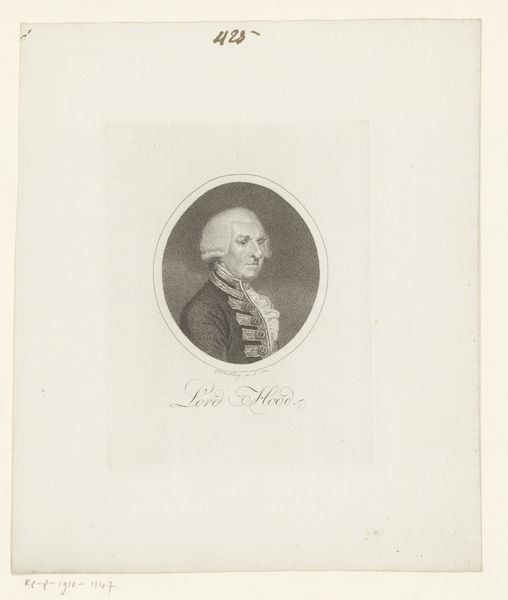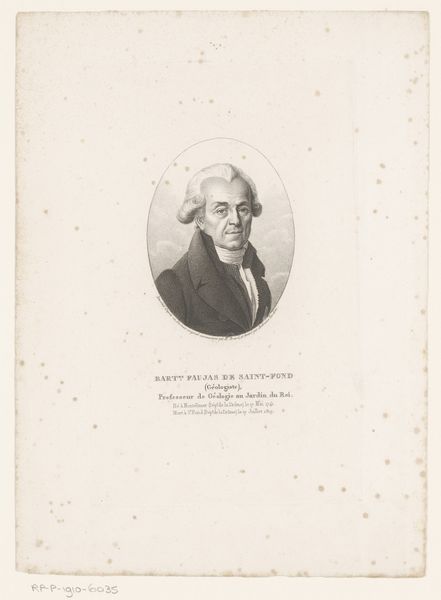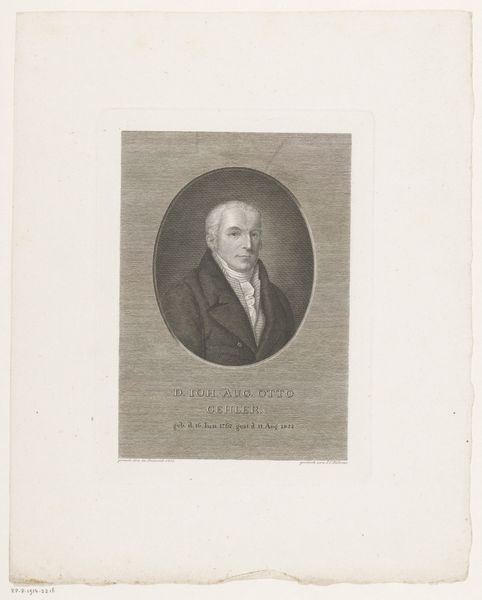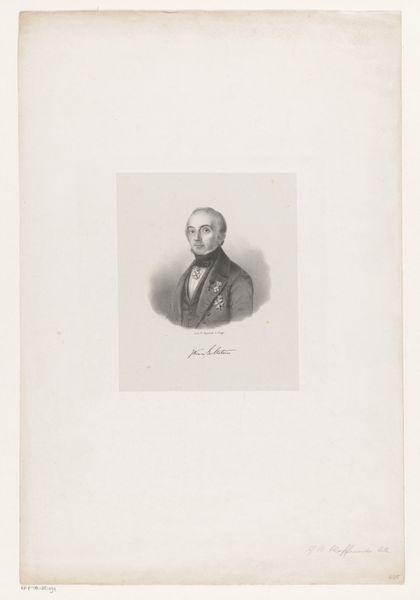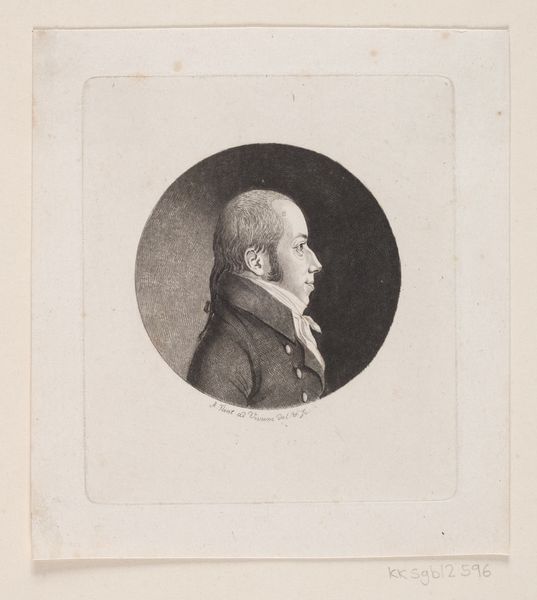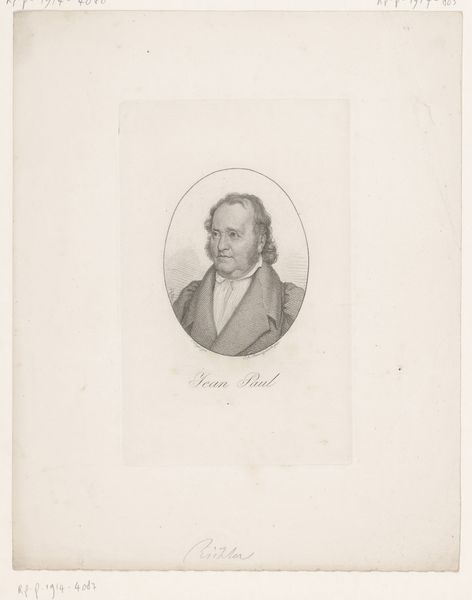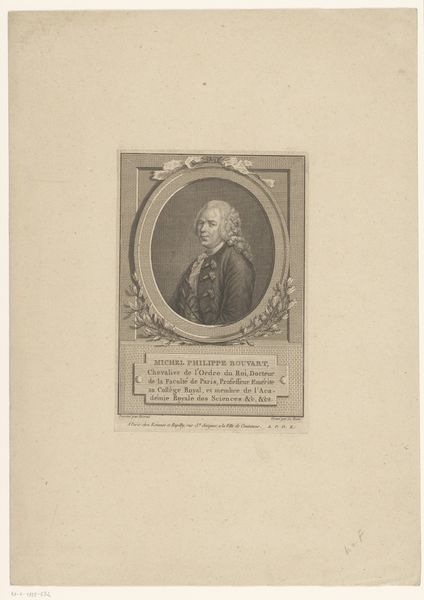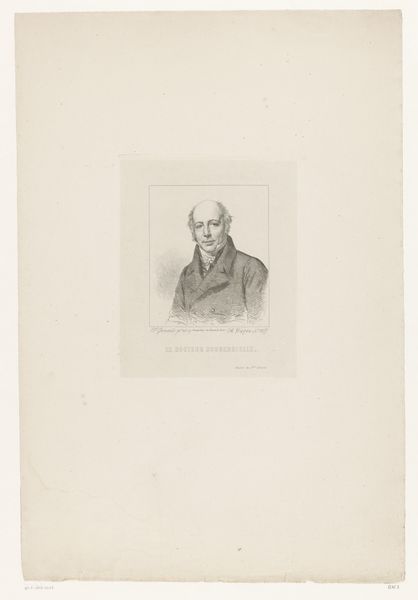
drawing, pencil
#
portrait
#
pencil drawn
#
drawing
#
pencil sketch
#
pencil drawing
#
pencil
#
academic-art
#
realism
Dimensions: height 195 mm, width 130 mm
Copyright: Rijks Museum: Open Domain
Editor: This is Carl August Schwerdgeburth's "Portret van Karl August Böttiger", made sometime between 1795 and 1878. It's a pencil drawing, and there's something so delicate about it, yet also very formal. How do you read it? Curator: It’s interesting to consider the choice of pencil here. It allows for this incredibly detailed rendering of Böttiger’s features and clothing, but it’s also a relatively inexpensive material. Was this portrait commissioned, or was it perhaps a study? This influences the reading heavily, since commissioning processes highlight relationships between patron and maker, the relative skills of each in the making, and their material access to high art culture. Editor: I didn't think of it that way, considering the pencil’s status. The detail definitely elevates it. Does the material then challenge this established hierarchy between high and low art, even? Curator: Precisely. Consider the labour involved, as well. This wasn't mass-produced; each line was meticulously drawn by hand. That labour gives the material value, regardless of its cost. What do we learn from the sitter’s appearance, in connection to that labour? How does he, too, present an idea of manufactured social standing? Editor: You're right. Even in the rendering, he feels consciously posed, presenting himself. And the fact it's a portrait underscores this performative element of status. So the choice of pencil and the painstaking work complicate our understanding of 18th-century social presentation. Curator: Exactly. It asks us to look beyond simple readings of wealth and consider the processes of making, not just art, but also social standing. The artist's choices in materials highlight the social performance captured, and also implicate themselves in the material culture and commerce surrounding pencil drawings. Editor: That's given me a lot to think about regarding how material choices can inform a portrait’s social narrative. Curator: And hopefully prompts you to continue interrogating artistic production’s conditions as you investigate more art!
Comments
No comments
Be the first to comment and join the conversation on the ultimate creative platform.
